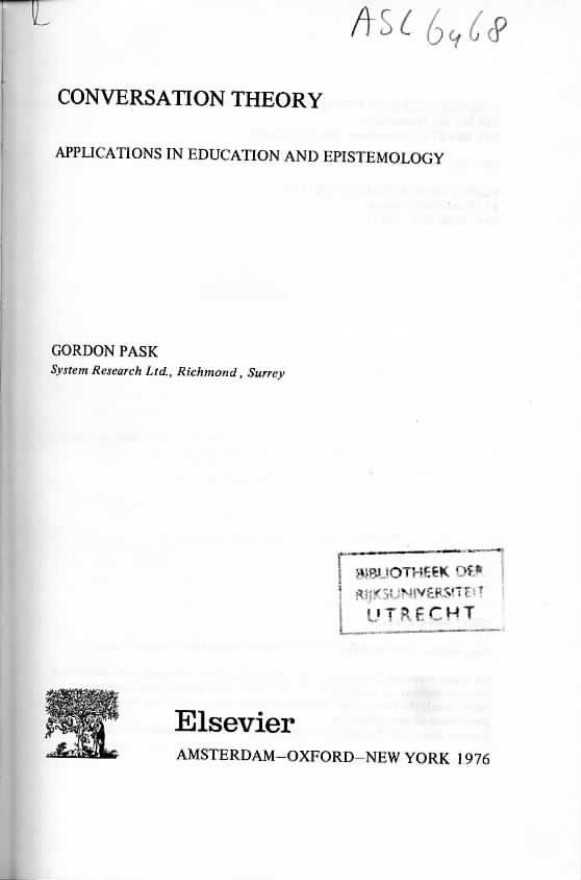Stephan Fuchs: Against Essentialism: A Theory of Culture and Society (2001)
Filed under book | Tags: · avant-garde, communication, constructivism, culture, essentialism, ethnomethodology, hermeneutics, networks, social theory, society, sociology, systems theory, theory

Against Essentialism presents a sociological theory of culture. This interdisciplinary and foundational work deals with basic issues common to current debates in social theory, including society, culture, meaning, truth, and communication. Stephan Fuchs argues that many mysteries about these concepts lose their mysteriousness when dynamic variations are introduced.
Fuchs proposes a theory of culture and society that merges two core traditions–American network theory and European (Luhmannian) systems theory. His book distinguishes four major types of social “observers”–encounters, groups, organizations, and networks. Society takes place in these four modes of association. Each generates levels of observation linked with each other into a “culture”–the unity of these observations.
Against Essentialism presents a groundbreaking new approach to the construction of society, culture, and personhood. The book invites both social scientists and philosophers to see what happens when essentialism is abandoned.
Publisher Harvard University Press, 2001
ISBN 0674006100, 9780674006102
380 pages
Vincent Mosco: The Political Economy of Communication, 2nd ed (1996/2009)
Filed under book | Tags: · communication, gender, globalisation, political economy, race, surveillance

The Political Economy of Communication provides a thorough coverage of an important area of communication studies: the political economy approach to media.
This highly successful text has been thoroughly updated, restructured and rewritten in this new edition, clearly demonstrating how power operates across all media, from newspapers to Facebook, and how media power intersects with globalization, social class, race, gender and surveillance.
– Provides a summary of the field of political economy, looking at its history and major schools of thought
– Highlights the work of key figures and differences that established the divide between economics and political economy
– Explains the necessity of media students to understand the general political economy tradition and the way in which it informs the political economy of communication
– Addresses the interdisciplinary nature of the field, with its links to economics, geography and sociology, and cultural and policy studies
This book offers a unique overview of the field of political economy of communication and will be of use to upper level undergraduate and graduate students of media and communication.
Publisher Sage Publications, 2009
ISBN 1412947006, 9781412947008
268 pages
PDF (updated on 2013-5-31)
Comment (1)Gordon Pask: Conversation Theory. Application in Education and Epistemology (1976)
Filed under book | Tags: · communication, cybernetics, education, epistemology, knowledge, knowledge production, learning

“The argument in this book aims to apply a body of cohesive and interpretable ideas, developed over the last dozen years or so, to issues of significance in educational psychology and epistemology. The history and development of these ideas, which emerged from experiments on perceptual motor learning, group interaction and sequential choice (as well as more obviously relevant studies of learning, subject matter structuring and cognition), are described in two previous books (Pask 1961, 1975a). But the main themes are crystallised in a monograph (henceforward called ‘the previous monograph’), Pask 1975b, Conversation, Cognition and Learning, which is part of the present series. In fact, the previous monograph marks a point of departure, for the notions cling together well enough to count as an empirically supportable theory: Conversation Theory.
Ideally, perhaps, Conversation, Cognition and Learning should be read first. But there are some 600 odd pages of it, including some lengthy appendices, and provided the reader will take various statements on trust, it is quite possible to start with this book. Conversation, Cognition and Learning can be regarded, with equal legitimacy, as an essay in man/man and man/machine symbiosis or as an essay upon education, learning and the like. In contrast, the present book is an application study and is unambiguously oriented towards the areas of education, its psychology and epistemology. The Introduction provides the essential groundwork, and for those who have read Conversation, Cognition and Learning, it bridges the gap between the two volumes.” (Gordon Pask, from Preface)
Publisher Elsevier, Amsterdam-Oxford-New York, 1976
ISBN 044441424X, 9780444414243
402 pages
via pangaro.com
PDF (updated on 2012-7-16)
Comment (0)
